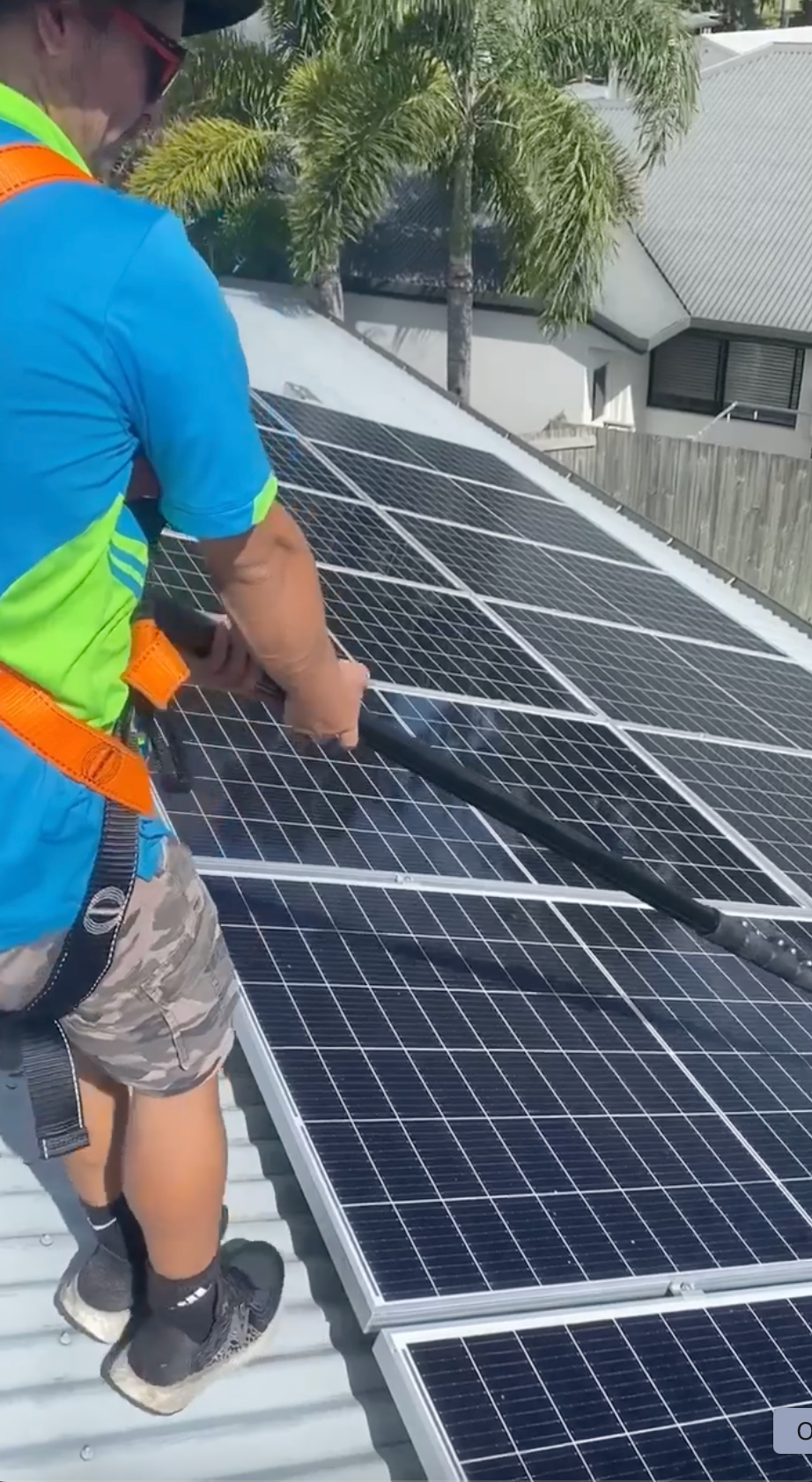Solar Panel Cleaning in Proserpine
- Serving Commercial, Industrial & Domestic Clients
- Calcium Removal Specialists
- High-Quality Products
Proserpine Solar Panel Cleaning
When solar panels are left uncleaned, performance can drop without you even noticing. Pain In The Glass offers reliable solar panel cleaning in Proserpine to help you keep your system running efficiently and avoid energy loss caused by dirt and debris.
We remove built-up grime, bird droppings, salt, dust and mould using purified, demineralised water and soft brushes. Our chemical-free process is safe for panels, eco-friendly and fully compliant with warranty requirements. Whether your panels are on a home, shed or business roof, we clean them carefully without causing damage or disruption.
We’re fully insured, highly experienced and trained to work safely at heights in all conditions.
Call
0478 754 851 for a free quote and keep your system performing at its best.
Fully Trained & Insured
Certified to Work at Heights
Eco-Friendly Cleaning Products
Complete Cleaning Solutions
We focus on thorough, safe and warranty-friendly cleaning. Here’s why we're the trusted choice:
- Grime, salt, mould and bird mess are effectively cleared away.
- Our solar panel bird proofing keeps birds from nesting under your panels, preventing mess, noise and damage.
- We use purified water only—no soaps or harsh chemicals.
- Our process follows solar panel manufacturer cleaning standards.
- We’re trained and certified for all height-related work.
- Residential, commercial and off-grid systems are all covered.
- Tools are designed to avoid scratching or surface damage.
- Improved panel output and better long-term performance.
- We work quickly and leave your property tidy.
- All quotes are free and tailored to your setup.
- Your panels will be left spotless and running more efficiently.
Ready to refresh your space? Get in touch now to schedule expert solar panel cleaning you can count on.
Is solar panel cleaning safe for the environment?
Yes, when done using purified or demineralised water, solar panel cleaning is very environmentally friendly. It requires no harmful chemicals or detergents, and the process relies entirely on physical cleaning with soft brushes and water. This means no toxic runoff enters soil, drains or nearby water sources. Because solar panels are often installed in eco-conscious homes or businesses, cleaners aim to preserve the property’s sustainable impact. Reputable professionals also follow water usage best practices and avoid over-spraying. If a small amount of biodegradable solution is required for stubborn buildup, it’s used sparingly and safely. Overall, it’s a low-impact, eco-safe practice.
Will cleaning solar panels void my warranty?
No, cleaning solar panels will not void your warranty—in fact, many warranties recommend or require regular cleaning to maintain peak performance. However, damage caused by improper cleaning methods, such as using harsh chemicals, pressure washers or abrasive brushes, can void your warranty. That’s why it’s important to follow manufacturer guidelines or hire a professional who uses approved methods. Keep records of your cleaning schedule and any professional services, especially if warranty claims arise. If unsure, check the documentation provided with your solar system or consult your installer. Proper maintenance is essential for both warranty compliance and long-term system performance.
Can solar panels be cleaned while it’s raining?
Yes, solar panels can technically be cleaned during light rain, and some professionals may choose to work in those conditions. Rain can help rinse off loosened debris and may keep panels cooler, reducing water evaporation and streaking. However, safety is always the top priority. Heavy rain, lightning, or strong winds make roof access unsafe, and cleaning would be postponed. Also, rain alone doesn’t clean panels thoroughly—it may leave mineral residue or fail to remove sticky contaminants like bird droppings or sap. Scheduled cleans are best done in dry, overcast weather, but light rain doesn’t necessarily prevent effective cleaning if safety conditions are met.



